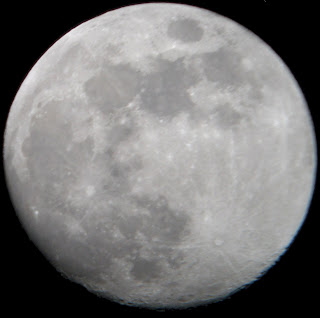¿Qué Pasa? They snuck out a new Cale album yesterday in the US without me knowing about it? I never dreamed I'd learn of a new Cale release by discovering it in a record store, but there you are.
The Record Store Day 2: Black Friday release of EP: Extra Playful features two new tracks not otherwise available. The full tracklist:
- Catastrofuk
- Whaddya Mean By That
- Hey Ray
- Pile A L'Heure
- Perfection
- Bluetooth Swings
- The Hanging
I'm midway through my first listen, but I'm favorably impressed so far. I had managed to avoid hearing Hey Ray and Whaddya Mean in their live versions. It's somewhat unserious and even jokey, though, in the vein of some of blackAcetate or Jumbo. The two bonus tracks on the US Black Friday release seem more demo-ish than the five original tracks. The Hanging is more fleshed out by far. I think this will have legs, but only time will tell...
The CD release is great. It could be mixed better, but it's much better than the bootleg I had previously. The band show (Essen 1984) is not his best of that tour, and that band wasn't his best of the era, but it's still a good listen. (John Cale Comes Alive covers the same tour in superior versions but with many fewer tracks.) The solo show (Bochen 1983) is excellent - rather less crazed than other shows, but more competent. It features my favorite recording of "Only Time Will Tell" to date.
The DVD is essential if you like watching Mr. Cale live... and who doesn't. The band show is more entertaining to watch. Heartbreak Hotel and Streets of Laredo will make much more sense when listening to the show after you've watched it.
The vinyl is disappointing. The two-disc release includes the entire band performance, but only four tracks from the solo performance, and not the best ones at that. I'd have preferred selections from both shows. But it is nicely done (better materials than Cale Comes Alive) and worth picking up for superfans.
Hopefully I'll see you again sooner than this time next year. It is beginning to be a habit, though... More...


 Celebrating the just-past full moon in June, here's another little oddity from the late Nineties, when our man was happy to do recitations for just about anybody who asked. Mr. Cale recorded
Celebrating the just-past full moon in June, here's another little oddity from the late Nineties, when our man was happy to do recitations for just about anybody who asked. Mr. Cale recorded 
